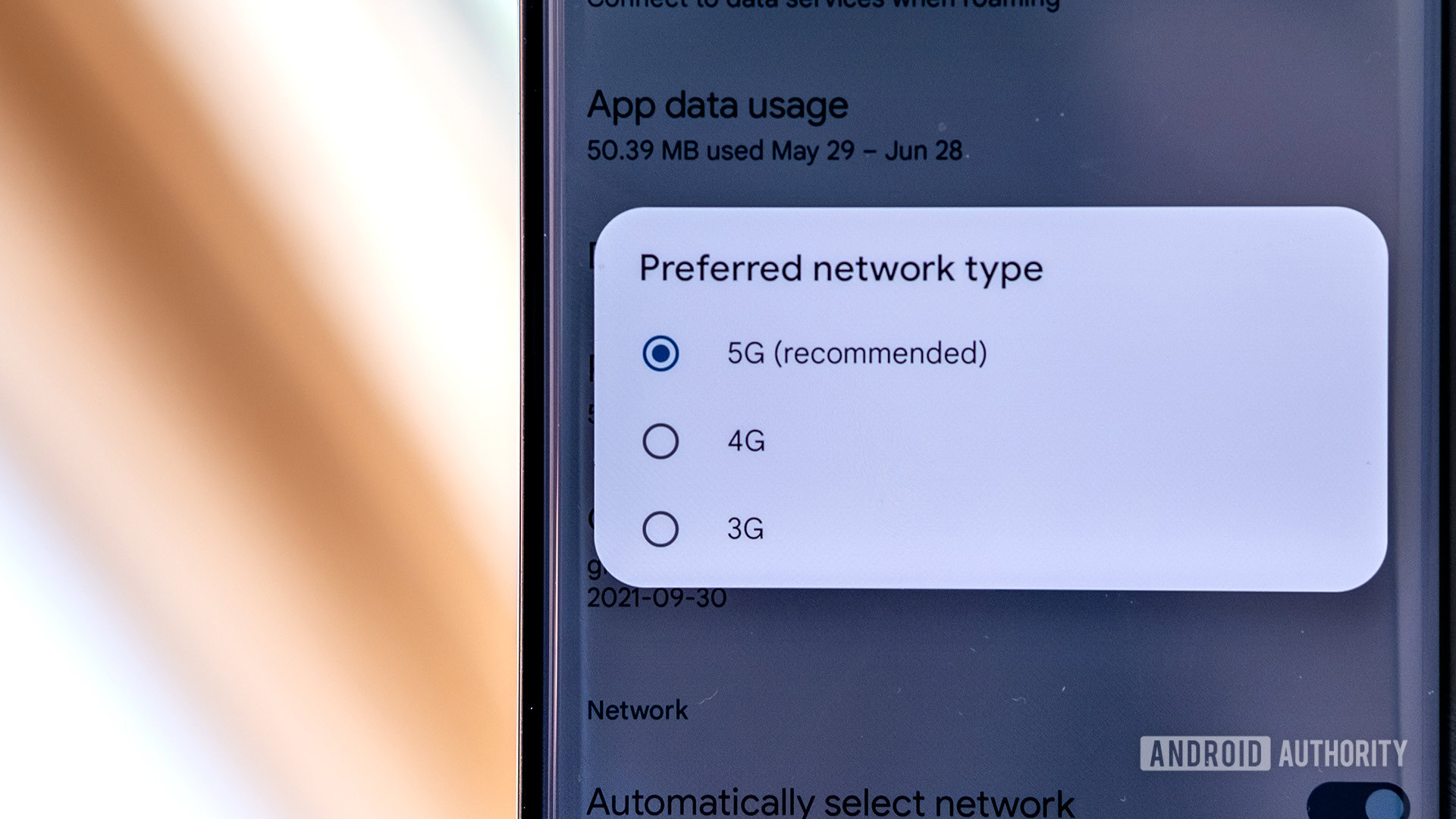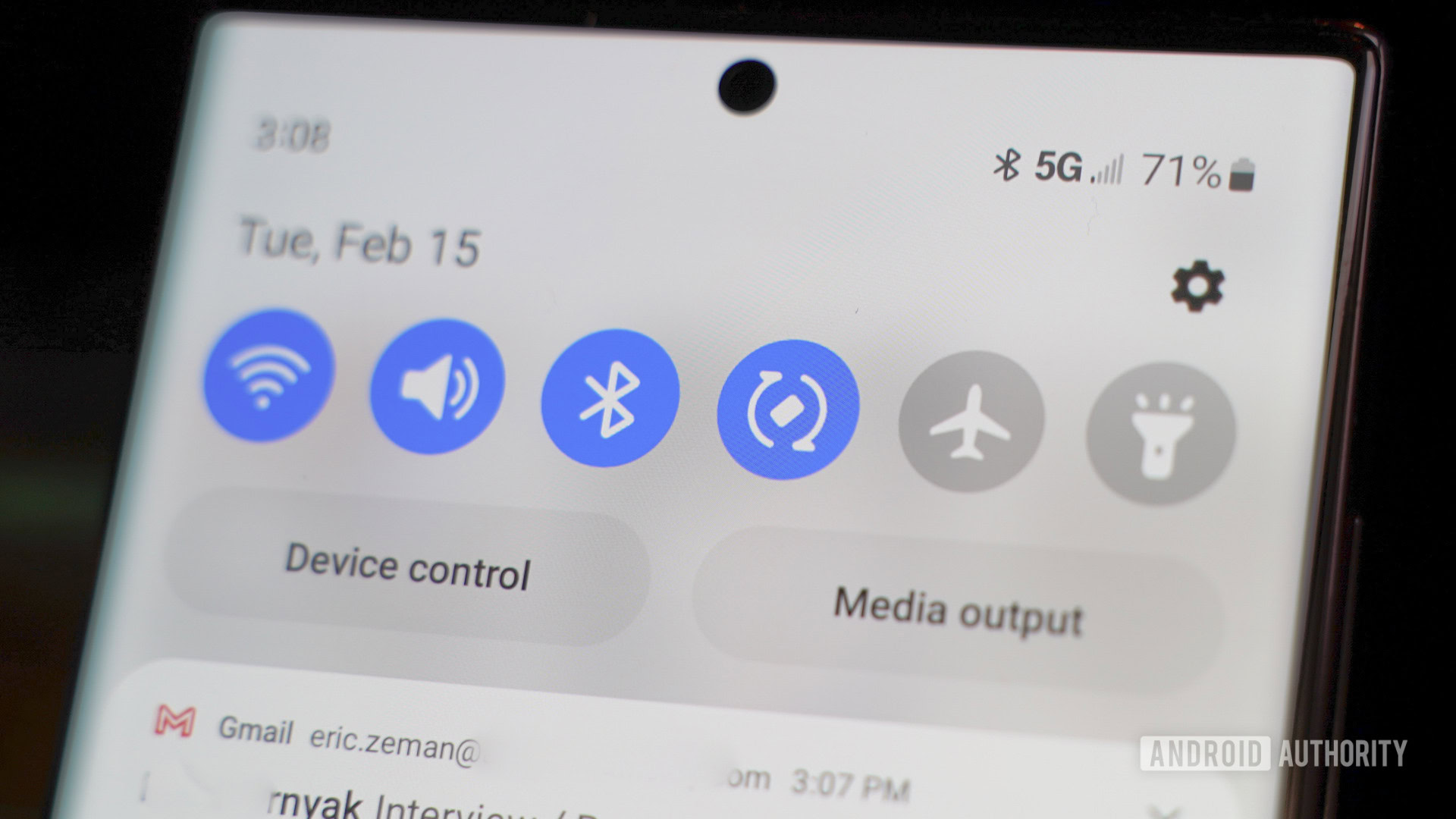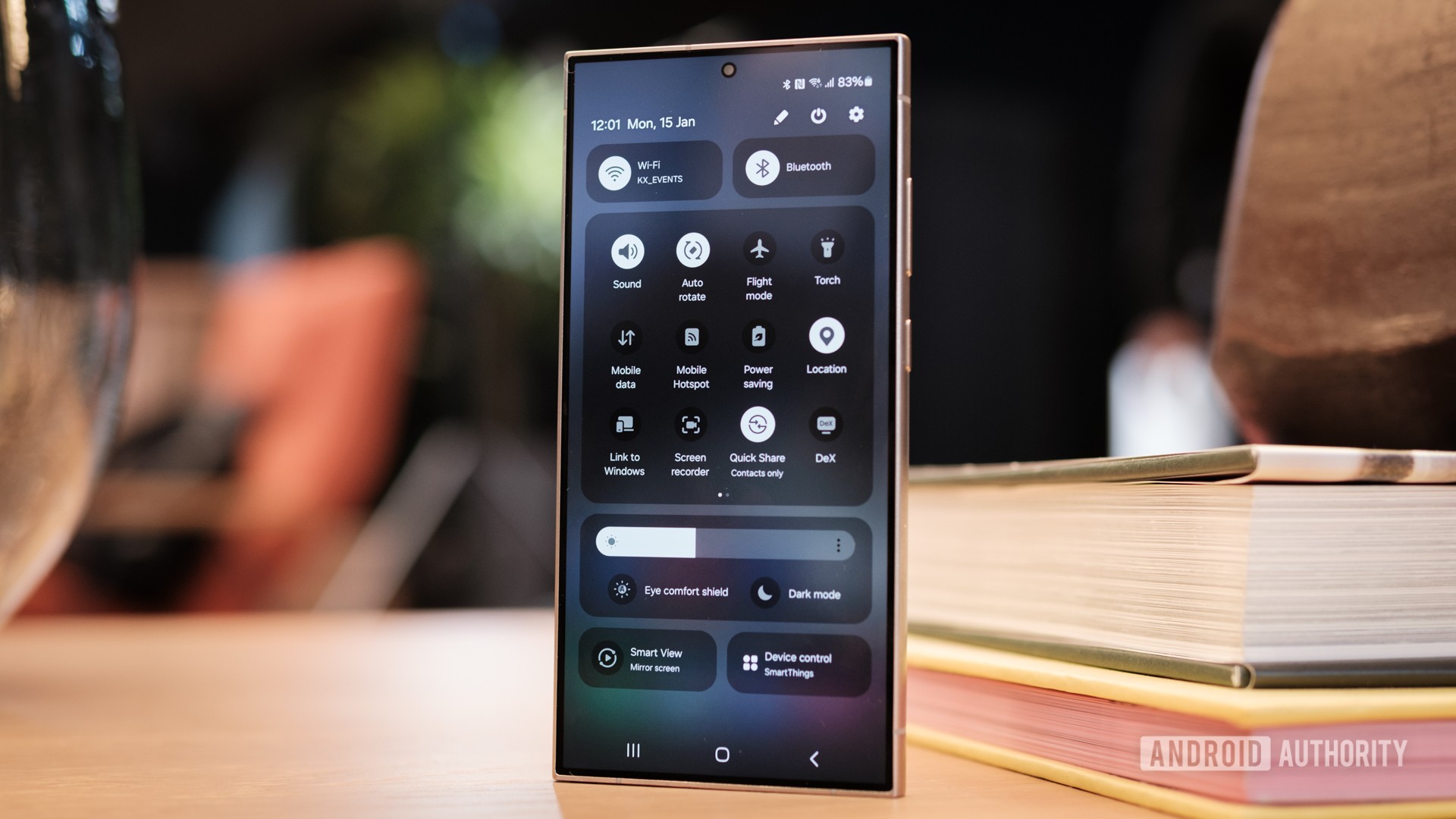Affiliate links on Android Authority may earn us a commission. Learn more.
Does 5G use more battery on your smartphone?
Published onFebruary 12, 2024

Once a feature reserved for flagship smartphones, 5G has now become widely available on devices across all price tiers. But hardware support is only one side of the equation — many carriers worldwide are still transitioning between 4G LTE and 5G. Keeping that in mind then, should you bother enabling 5G on your smartphone? And more importantly, does the feature drain your battery faster than previous gen cellular standards? Here’s everything you need to know.
5G has the potential to consume more battery than 4G LTE, depending on how your carrier has deployed the network. You may also see higher battery drain if you’re far from the nearest 5G cell tower. Keep reading to understand why.
JUMP TO KEY SECTIONS
Does 5G use more battery than 4G LTE?
Yes, 5G can use more battery than 4G LTE in many scenarios. You’re also not alone if you’ve noticed higher battery drain than usual while connected to a 5G network.
Samsung, Apple, T-Mobile, and others have admitted that you should probably switch to 4G if you care about battery life. This may sound counter-intuitive, given that 5G was supposed to enable faster data transfer and reduce network activity. But there are actually a few good reasons behind this, starting with how carriers globally have upgraded to 5G infrastructure.
Your smartphone may still need 4G for voice and text when connected to a 5G network, potentially increasing battery drain.
Carriers have two options when it comes to upgrading existing 4G infrastructure to support 5G technologies. The first kind, Non-Standalone 5G (5G NSA), involves using 5G for data transfer as you’d expect. However, it still routes calls and messages through legacy 4G or 3G networks. According to Samsung, this means that your smartphone is connected to two different networks at the same time, which increases power draw and battery drain. Standalone 5G (5G SA) deployments don’t suffer from the same limitation as it doesn’t rely on LTE.
Unsurprisingly, the earliest adopters preferred 5G NSA since it’s cheaper to deploy. And you can’t blame carriers since the difference likely adds up at the scale of an entire country. Unfortunately, this is not something you can control, short of switching carriers anyway. In the US, T-Mobile is currently leading the pack in terms of 5G SA coverage in the US. Before you switch though, keep in mind that there are also other 5G-related factors contributing to increased battery drain.
Take action: How to turn off 5G on your Android phone
As we learned from 3G and 4G many years ago, transitioning smartphone hardware from 4G to 5G wasn’t going to happen overnight. The first 5G smartphones used a discrete modem rather than one integrated directly into the SoC. This led to exceptionally high power draw across the board, not just on 5G networks. The situation has improved somewhat since then, with integrated modems now commonplace. Still, 5G connectivity remains slightly inefficient compared to 4G LTE.
Poor signal strength can dramatically affect your smartphone's battery life.
This problem only gets worse when you don’t have decent reception. If you’re far away from the nearest 5G tower, your phone’s modem has to work harder to establish a connection. In other words, expect higher power draw and lower battery life. Check your carrier’s coverage map if available. Depending on where you live, 5G towers may be few and far in between — at least when compared to 3G and 4G LTE.
How much more battery does 5G consume compared to 4G?

To conclude, 5G battery drain depends on the type of network you’re connected to, your phone’s hardware, and cell reception. These factors change and evolve over time, making it difficult to pinpoint how much worse 5G is for battery life.
As a quick point of reference, though, early 5G smartphones lost one to two hours of battery life versus a standard 4G connection. The iPhone 12, the first in the series with 5G support, suffered from this problem. To remedy this, Apple now offers a Smart Data mode that automatically turns off 5G on the iPhone when you don’t need it. Similarly, many users reported better battery life on the Pixel 6 series after they disabled 5G.
When it comes to more recent devices like the Pixel 8 or any of the best 5G phones, you’ll likely notice a smaller difference in battery life. And as time goes on, you can expect the difference in battery drain between cellular generations to disappear entirely.
5G vs Wi-Fi: Does mobile data use more battery?

Yes, cellular technologies like 5G will always drain your battery faster than Wi-Fi. You see, the strength of a radio wave decreases exponentially as you move away from the base station. This is known as the inverse-square law. In order to compensate for this fall-off, your phone needs to send out a more powerful signal.
When you connect to a Wi-Fi network, you’re much closer to the source of the signal. 5G signals, on the other hand, can originate from several hundred meters away, if not more. And while it does help that cell phone towers are usually much more powerful and larger than your typical home router, your phone still needs to emit a more powerful signal. This problem only gets worse the further you move away from the tower, so a stronger signal is always recommended.
Of course, your smartphone still remains connected to a cell tower even when you switch over to Wi-Fi. However, this link isn’t actively used for data transfer and is more or less kept idle until a voice call or SMS comes along.
FAQs
Yes, in most cases, you will likely notice increased battery life if you turn off 5G.
Yes, 5G has the potential to use more battery than 4G. This is especially true for first-generation 5G devices, which used inefficient modems.